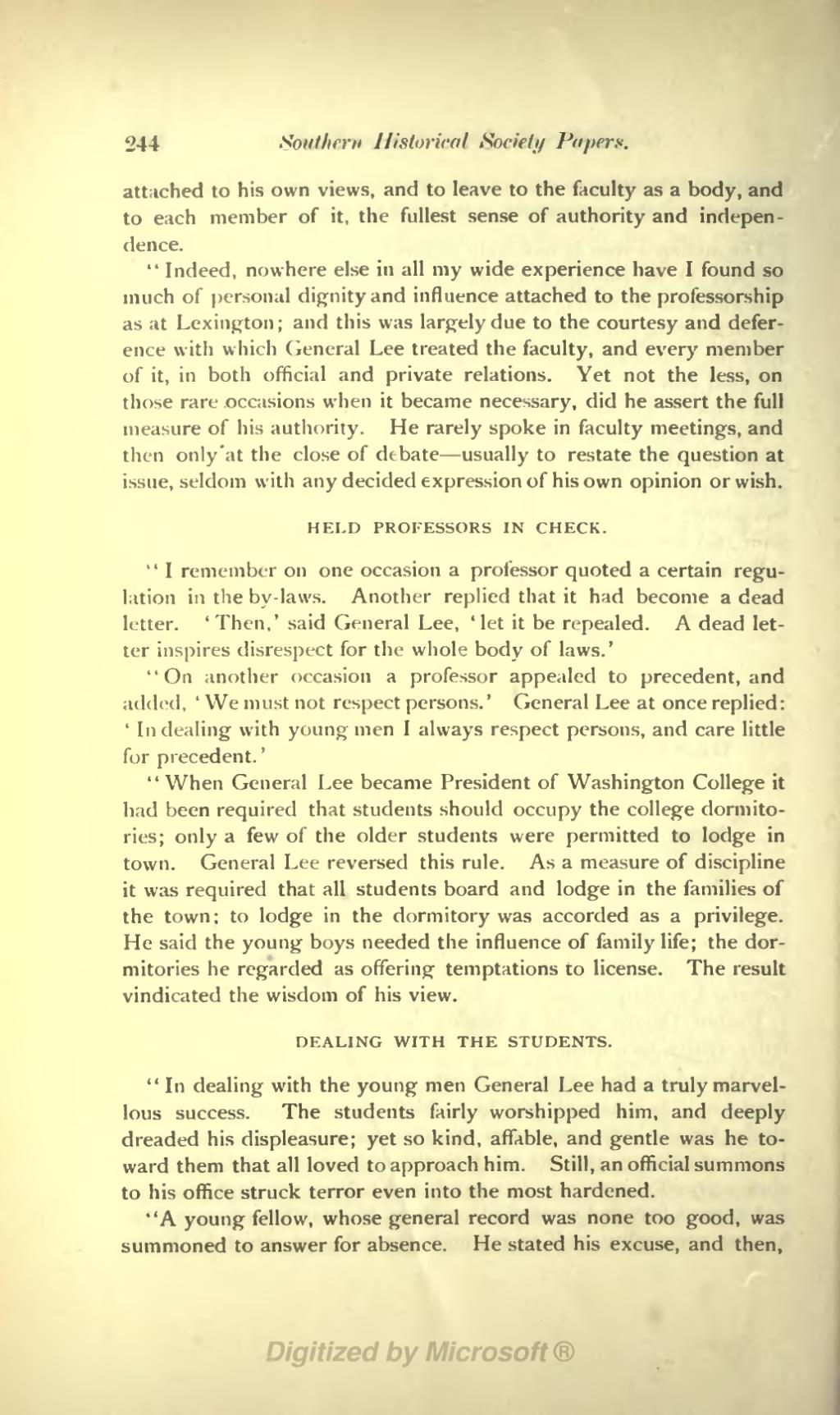attached to his own views, and to leave to the faculty as a body, and to each member of it, the fullest sense of authority and independence.
"Indeed, nowhere else in all my wide experience have I found so much of personal dignity and influence attached to the professorship as at Lexington; and this was largely due to the courtesy and deference with which General Lee treated the faculty, and every member of it, in both official and private relations. Yet not the less, on those rare .occasions when it became necessary, did he assert the full measure of his authority. He rarely spoke in faculty meetings, and then only'at the close of debate usually to restate the question at issue, seldom with any decided expression of his own opinion or wish.
HELD PROFESSORS IN CHECK.
"I remember on one occasion a professor quoted a certain regulation in the by-laws. Another replied that it had become a dead letter. 'Then,' said General Lee, 'let it be repealed. A dead letter inspires disrespect for the whole body of laws.'
"On another occasion a professor appealed to precedent, and added, 'We must not respect persons.' General Lee at once replied: 'In dealing with young men I always respect persons, and care little for precedent.'
"When General Lee became President of Washington College it had been required that students should occupy the college dormitories; only a few of the older students were permitted to lodge in town. General Lee reversed this rule. As a measure of discipline it was required that all students board and lodge in the families of the town; to lodge in the dormitory was accorded as a privilege. He said the young boys needed the influence of family life; the dormitories he regarded as offering temptations to license. The result vindicated the wisdom of his view.
DEALING WITH THE STUDENTS.
"In dealing with the young men General Lee had a truly marvellous success. The students fairly worshipped him, and deeply dreaded his displeasure; yet so kind, affable, and gentle was he to- ward them that all loved to approach him. Still, an official summons to his office struck terror even into the most hardened.
A young fellow, whose general record was none too good, was summoned to answer for absence. He stated his excuse, and then,
